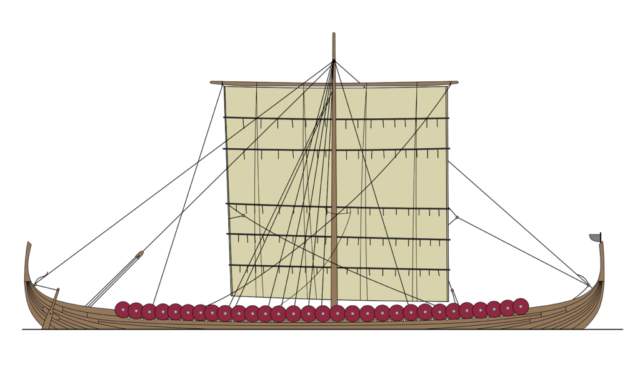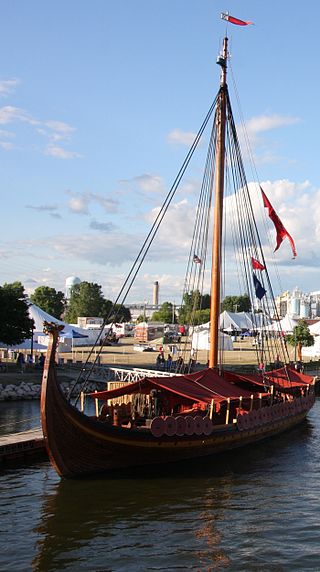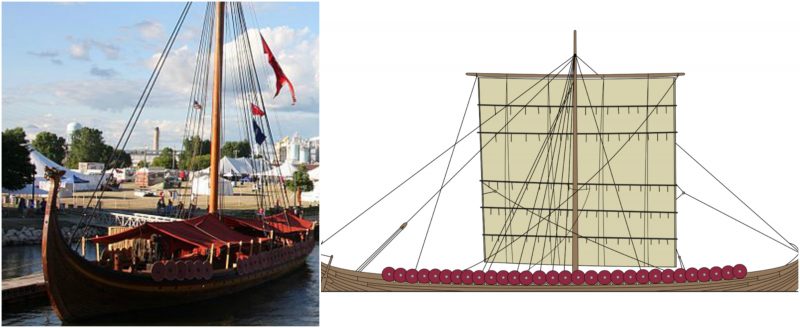They trekked through the treacherous English woodlands and crossed the Atlantic to set up colonies on the Canadian coastline; however, Vikings could have been beaten by the American Bureaucracy had the US had emerged on the map a few centuries earlier. “Bureau” may be a German word, and Germany may have had a great track record in burying people under paperwork, but the United States is the new emerging superpower when it comes to the bureaucracy.

A real life replica of the Viking ship, meticulously rebuilt to bring the Ancient Norse sagas to life, sailed from Norway to Canada via the Faroe Islands, Greenland an Iceland. However, in its last leg of the journey it had to sail across the Great Lakes; the feat has been considerably hindered due to the ruthless paperwork involved to complete the trip. The organizers have been advised by the US coastguards that they need to hire a local pilot that could cost them more than $400 per hour.
The giant replica, dubbed Draken Harald Harfagre, sailed across the Atlantic Ocean in treacherous conditions, relying on only its basic navigation systems. The aim was to follow the route that Viking sailors used to reach the North American coast some 1,000 years ago. The journey started from Haungesund, in Norway, in the April, of this year and saw the ship fight its way through harsh conditions and unexpected hindrances.

The idea was to pay tribute to the Viking leader and explorer Leif Erickson, who historically discovered the New World – meaning, in this instance, the North America – at least half a millennium before Christopher Columbus landed there by mistake.
The ship’s captain, Bjorn Ahlander, criticized the US coast guards’ apparently ridiculous advice to hire a local pilot; he added that the proposed rate of $400 per hour is even more then what a commercial freighter would have charged. Mr. Ahlander expressed grave concerns over the hindrances caused by the US authorities suggesting that people have been passionately waiting for the Viking ship’s arrival. He also said that the ship and her crew were warmly welcomed at every single port they had stopped at since the start of the journey, and that it would be a great disappointment if they could not pursue their expedition.
The CEO of the Great Lakes Pilotage Authority, Robert Lemire, explained that the situation became critical and much more bureaucratic when the ship crossed Lake Ontario, and while passing through the Welland Canal, it entered in the waters that come directly under US coast guards’ jurisdiction.
